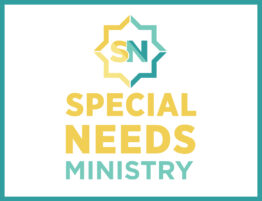
The hood of the car flew up, causing Joe—with Joey in the front seat next to him—to have to think quickly, move to a turning lane, and secure the hood. The hood was probably tripped by someone accidentally, as they were cleaning the inside of our car just moments earlier. And while all that was going on, Joe had to think quickly as to how to frame whatever would come out of his mouth, because Joey will respond—often negatively—if there is shouting, noise, or commotion, and it will be a negative reaction from him. He might yell, hit, scream, or get angry. Crying is almost never in the equation, but he will have a response.
Within seconds, Joe calmly but frightfully said (not shouted), “OH MY,” at the incident that could have been tragic. He put the car in park, turned it off, jumped out in the turning lane, slammed the hood down, and got back in the car. Joey was wide-eyed, visibly shaken, and taken by surprise also. Joe could tell Joey was waiting to know how to respond. Joe asked him, “Are you OK, buddy?” Joey said, “Scared.” Had Joe reacted the way most of us—okay, me—would have, Joey might have freaked out and the situation might have escalated. Not only are our words important, but the tone and the emotion can also make a difference in what happens next.
Sometimes words flow out of our mouths and we wish we could grab them and take them back. Other times we just get off on tangents of thoughts, and the thinking comes out into words that aren’t really helpful and beneficial. In our marriage—and in particular as we parent our “typical” children and children with special needs—our words can land hard on little hearts if we’re not careful. They can also land hard on our hearts, so let’s consider a few ways we can repackage and recycle our words (and thus our actions) into ways that are helpful, beneficial, and life-giving:
Source: Special Needs Parenting- Key Ministry

